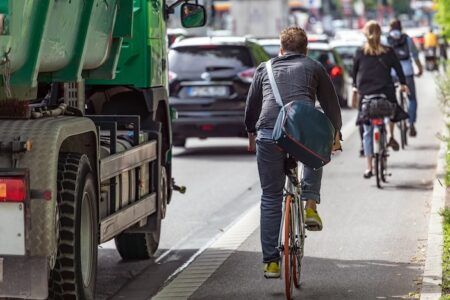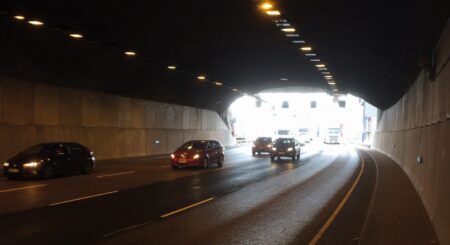A unique partnership among public agencies and the private sector has identified Detroit’s mobility challenges and potential solutions, and will now launch pilot projects targeted at addressing some of the city’s transportation issues.
Representatives from the City of Detroit, the State of Michigan, and the business and non-profit sectors have come together to form the Detroit Mobility Innovation Initiative, an effort to better understand the challenges residents face getting around the city and to develop innovative mobility-focused solutions. Partners in the Initiative include: the City of Detroit, PlanetM/Michigan Economic Development Corporation, General Motors, Lear Corporation, DTE Energy, Bedrock Detroit, Quicken Loans Community Investment Fund, New Economy Initiative, The Boston Consulting Group, and BCG Digital Ventures.
Following more than 100 hours of interviews with citizens, the partnership identified four key areas of need:
• Neighborhood mobility – improving offerings for residents using public transit to get to work and health care services;
• Downtown accessibility – improving traffic conditions and parking offerings for residents looking for affordable and convenient parking close to home, and for people who commute to the city for work or major events;
• Traffic safety – reducing the number of traffic injuries and fatalities for pedestrians, bikers, drivers, and riders;
• Electric vehicle (EV) utilization and education – optimizing the use of existing EV infrastructure and educating the public about electric mobility options.
The effort aims to help inform long-term transportation solutions for residents, visitors, and employers in Detroit, while also supporting a startup ecosytem and giving corporate partners an opportunity to explore innovative technologies and services. Through the process, six solution concepts have been identified for the four areas of need, with these available for possible deployment and testing in real-world environments in the city.
The concepts are:
• A new transportation solution that will dynamically route shuttles and buses based on ride demand, in order to drastically improve the transit experience by taking more direct routes and reducing the number of stops;
• A revolutionary carsharing program that will provide low-cost car access to citizens through features that encourage responsible driving and lower insurance fees and operating costs;
• A comprehensive parking platform that integrates dynamic pricing with a perks program to help drivers find parking at lower prices, while fostering economic development and reducing congestion;
• A public space in the heart of Detroit that residents and visitors can enjoy while fast-charging their EVs or learning about the benefits of EV technology, in addition to other state-of-the-art automotive technologies;
• A traffic management system employing connected technology to provide priority to transit vehicles at signalized intersections;
• A central intelligence hub that sources data from various infrastructure, vehicle, and mobile device sources to enable the development of concepts that require access to big data to address safety and operational issues on Detroit’s street network.
“Mobility solutions must be developed for the people who will be using them,” said Mark de la Vergne, chief of mobility innovation for the Mayor’s Office. “This was a unique opportunity to work hand-in-hand with Detroiters and the private sector to create solutions that will help people get around our city. These future pilots will not only address challenges in Detroit, but also improve mobility in cities across the country.”




